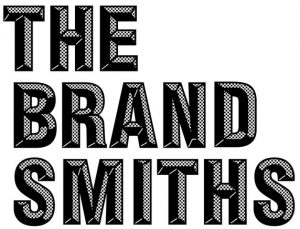
The story is (so often) in the telling.
I love how parallel messages appear in our lives in unforeseen ways. Often, a theme will reveal itself in one channel (work) but repeat itself in another (parenting, friendship), despite the fact that the situations have nothing to do with each other. In my own life, these recurring patterns often support and nurture the best version of myself, but what to do when others show up as acute reminders of what isn’t working?
Therapists, astrologers, doctors — virtually any professional dot-connector — look to patterns to help people make sense of their circumstances. Those of us in the self-reflective camp also gaze into our individual constellations to draw lines — to find continuity — in an effort to get a sense who we are in the eyes of others. Whether we’re aware of it or not, it’s this feedback loop that affects change and helps us live harmoniously in our relationships.
But what are we to do when the messages arrive vis-Ã -vis dynamics where dialogue is already charged or where old wounds fester even in new conversations? Could be between boss and employee, business partners, parents and children — in marriage. This is where it’s easy to get hung up and stuck in a cycle.
Sample dialogue from my own life:
Me (to myself): “he thinks my standards are too high — that I’m demanding.”
Me, to my key complaint collaborators, expanding on the meaning out loud: “he must not respect me, or maybe it’s all women.”
But, if I step back and look at the conversations that informed these assumptions through a more critical lens, it’s not hard to see that I have assigned meaning to whatever was said and become more attached to it with every re-telling. (Incidentally, my take was wrong.)
As a professional storyteller, I have the opportunity to look at a company’s DNA and make decisions about how the story is told, and there are always a variety of ways to go that could all be equally true. But as people, we are not brands (in our personal lives, at least). Yet our stories deepen and define our experience the more often we (re) tell them. So while a brand benefits from re-telling the same story (in different ways) on a consistent basis, people may not.
I wonder, is there a way to utilize the re-telling as an opportunity to re-pattern?
Could the words we choose to recount challenging experiences be used to create filters that somehow disrupt the same patterns from arising in the future? It would mean reframing the stories we tell ourselves in the present, in service to the promise of a future with fewer convictions – but more room to grow.
Here’s an example (if you’re still reading this bonus-length-blog) that allows me to test this hunch further, without revealing too much about the multiple (so many!) areas of my own life where it rings true.
Over the past year, my 9-year old daughter has been reporting various situations at school (or in her life in general) that she has dubbed “soANNOYING.” After watching this word emerge a little too frequently over several months (and realizing that she’s clearly an early-adopting-pre-teen), I brought it to her attention. We talked about how it feels to be a person who is constantly “annoyed.” What does “annoyable” look like? Sound like? When framed in this way, she didn’t like the picture I painted, which allowed us to start a little game together.
The challenge? You can’t say “annoyed” or any derivative of “annoyed.”
What has replaced it? She found her way with…
“Unexpected.”
“Surprising.”
“Distracting.”
“Strong.”
“Curious.”
“Interesting.”
“Unclear.”
“Powerful.”
Lots of vocabulary bonus points here, but more importantly, it allowed us to have a dialogue about options, specifically the choice to reframe events in the retelling of them. What could be catalogued as “bad” gets to be reorganized (with more empathy and less judgment) without sacrificing her experience.
“James used some strong words toward me in class. It bothered me.”
“She keeps tapping her foot on my chair — it’s becoming distracting.”
“Well…that comment was unexpected!”
This game has actually changed how she (and I) view discord, because in recounting the situation (the place most of us commit to our stories), we’ve forced a process that allows for better options; options that could be equally true, but don’t reinforce the worst filter of our worldview.
Of course, I love this for her young mind, but after a few weeks of hard conversations in my own life, I’ve taken to doing the same thing. By examining the first meaning I attribute (always emotional), and the vocabulary I use to retell it (to my own sympathetic audiences), it’s easy to see that almost nothing has to mean what it may first seem to mean. Just because an initial feeling conjures up highly charged feelings, it’s important to be conscious of how they can infiltrate and have power over our personal history.
This is really about how we assign meaning…and being open to reframing that assignment.
This falls partly into the ‘loving kindness for others” category (usually a good thing to give benefit of the doubt), but the most self-serving view of this is how it might shift our personal tectonic plates.
I would never minimize a feeling by replacing a traumatic experience with a veneer of happiness or “silver lining.” That’s not what I am suggesting. But what I do appreciate about this challenge is having the awareness to ask myself, in the aftermath, “could it be seen another way? Could I take some more productive lesson from the outcome? Is there a way to interpret this with less rush to categorize? Is it possible I can’t know everything from where I sit?”
We are always becoming…more …of something.
It’s easy to see this self-improvement process as an evolution that happens in front of us — an aspiration that reaches forward toward the kind of human we’d like to be more of. But I think the way we make sense of past infractions plays a big hand in who we slowly (but certainly) become. By being less right — or less certain about the story we think is at play – we get to write a different one that may re-shape pesky plot patterns we don’t much like.
Imagine being able to rewrite tomorrow before it happens?
The story in the telling – as much as the re-telling.


